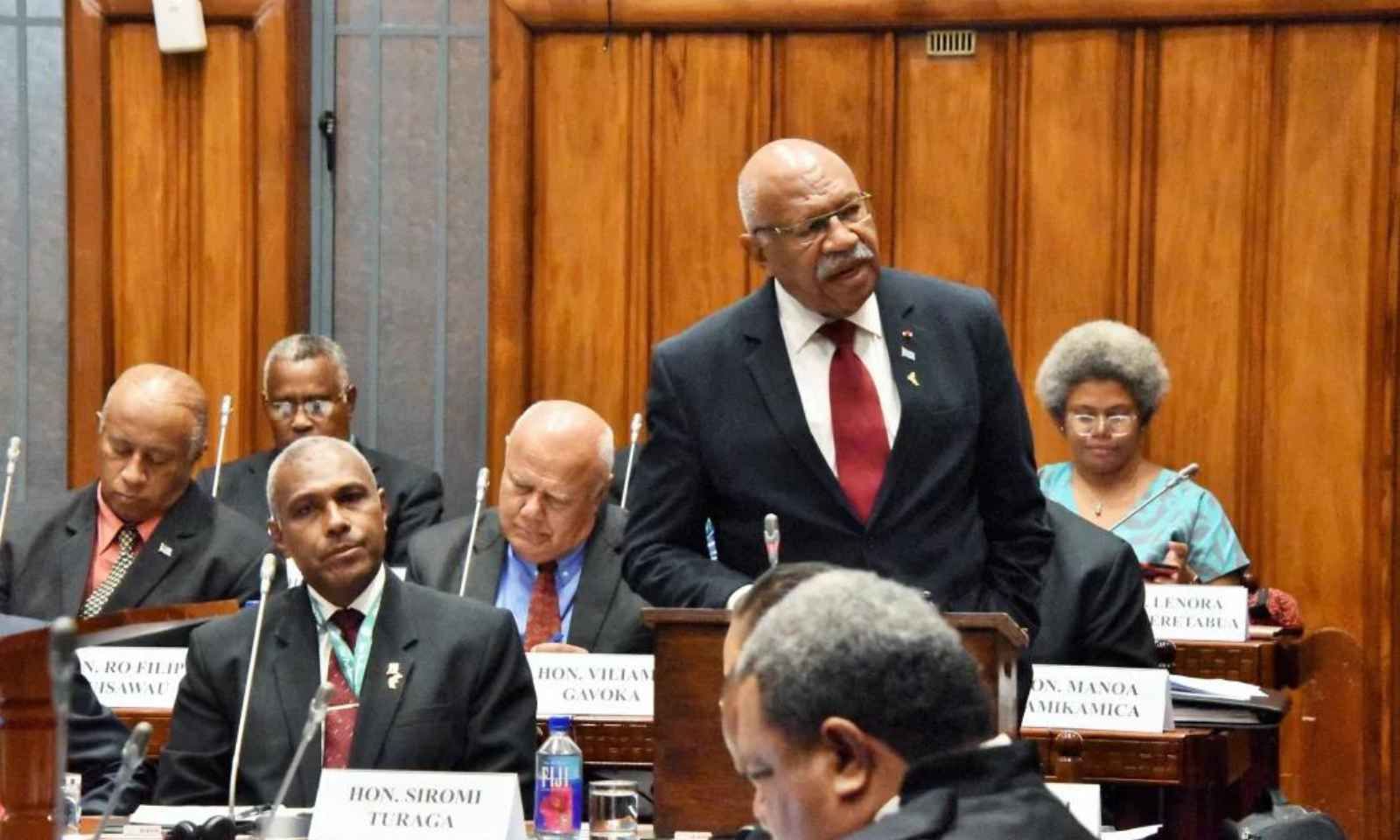

More than three tonnes of methamphetamine were seized by Fiji police in Nadi in January.
Photo/supplied
'Good investment': Narcotics unit hailed in Fiji's fight against illicit drugs
A new strategy and a narcotics bureau are among the solutions the Fiji government is taking on board to tackle the country's widespread drug disaster.




Inked across lands: How Pacific tattoo art is thriving in Germany

Pacific pride on the big stage: ‘Chief of War’ wins Best Ensemble at the Spirit Awards



Inked across lands: How Pacific tattoo art is thriving in Germany
There is a need for an aggressive, multifaceted response including a drug enforcement bureau to tackle Fiji's growing drug abuse problem, the government says.
Cabinet has endorsed Fiji's Counter Narcotics Bureau - an independent institution under the Ministry of Home Affairs and Immigration - with F$2 million (NZ$1.5m) allocated to set up the unit.
In his Budget address last week, Finance Minister Biman Prasad said while the focus must be on raising incomes and improving the overall quality of life for every Fijian, there was funding available for a narcotics unit.
Head of Pacific Studies at the University of Canterbury, Pro Vice-Chancellor Steven Ratuva, said the drug crisis in Fiji was "terrible and the narcotics bureau is a very good move.
"The drug crisis is all around the Pacific, in fact, around the world," he told Pacific Mornings' William Terite. "But because of the size of a Pacific country like Fiji, the impact is much more than say in the United States or Australia, which are the big [drug] markets.
Watch Steven Ratuva's full interview below.
"So, it's a good investment for the future because the drug crisis has impacted by things like poverty, economic development, all those at the same time impact on these things, impact on people's well-being, stability and security."
Fiji police seized three-and-a-half tonnes of methamphetamine in January, in what they say is one of the largest seizures in the country. Thirteen people have been charged, including police officers, in connection with the 4800kg meth bust.
Ratuva said Fiji's fight against drugs must extend beyond law enforcement and include community prevention, rehabilitation support, and better coordination between law enforcers and the community.
He said culturally appropriate education, community engagement from outside the government, and greater integration would also be critical for progress.
Fijian Prime Minister Sitiveni Rabuka said the key focus under the National Counter Narcotics Strategy 2023-2028 was to reduce the demand for illicit drugs, reduce supply, reduce harm, legislative reform, and data collection.
Speaking to youths during a mind lecture and healing concert in Suva, Rabuka said Fiji’s drug problem threatened the health, well-being, and future of the country.
He said the drug crisis extended beyond personal addiction to impact families, communities, and ultimately, the entire nation.
“Young people addicted to drugs lose the opportunity to realise their potential, and their dreams and hopes can be shattered."
Rabuka, who returned as PM after defeating Frank Bainimarama in the 2022 general election, was forced into a coalition government with the National Federation and Sodelpa parties.

Fiji's Prime Minister Sitiveni Rabuka says a new narcotics and drugs bureau will be established to deal with a surge in drug trafficking cases and crimes in the country. Photo/supplied
"There have been ups and downs. There have been issues within the coalition itself. It's been trying its best to keep the coalition together. And that has been part of the struggle, part of the challenge, I suppose, in maintaining the coalition.
"As in any coalition, the nature of the dynamics of power, the relationship between the different political parties, can divert a lot of attention away from national development, from engaging with issues which are supposed to be priorities.
"They have some good people in government but some of the ministers have not been performing well. One has just lost his job as a result of alleged corruption. So there have been cases investigated," Ratuva said.
Education received the biggest slice of the Fijian budget pie (F$4.5 billion) with F$778m.
Ratuva welcomed the move but said he would like to see some reform in the education sector.
"Education is always a good investment, especially if you want to address issues of well-being, of poverty, for social mobility, for young people, and prosperity for the country," Ratuva said.
"Education is one of the means by which you do that and I think it's very significant in this particular budget that a lot has been put into education.
"But the only issue for me is whether it is fit for purpose. It's been there for some time. It needs a lot of reform. If you pour money into a system that is not functioning properly, then you might have some problems there.
"So for decades, the same structure has been there, the same curriculum. There have been attempts to change it, but it's a great opportunity perhaps to begin to ask questions and see how the money can be used more smartly."